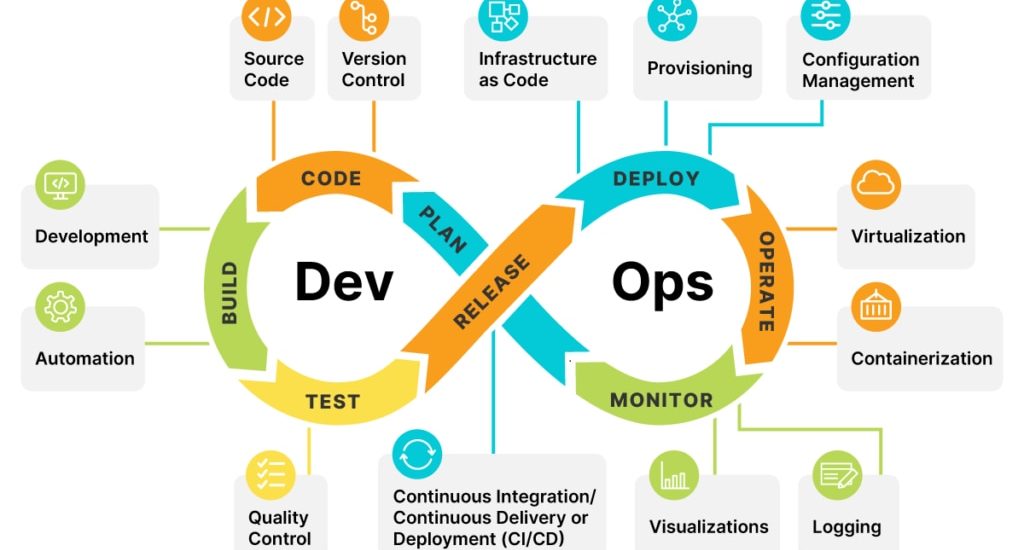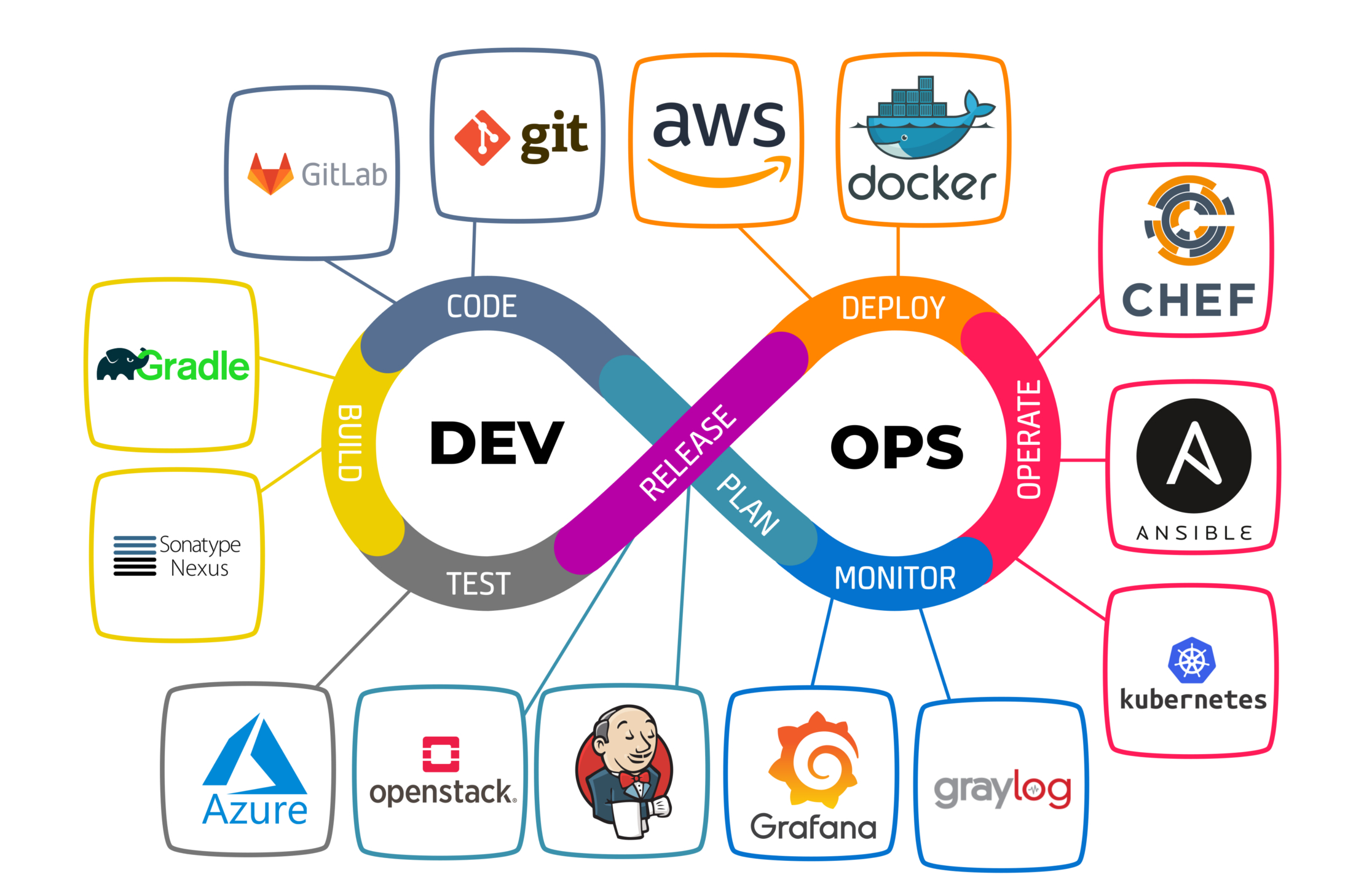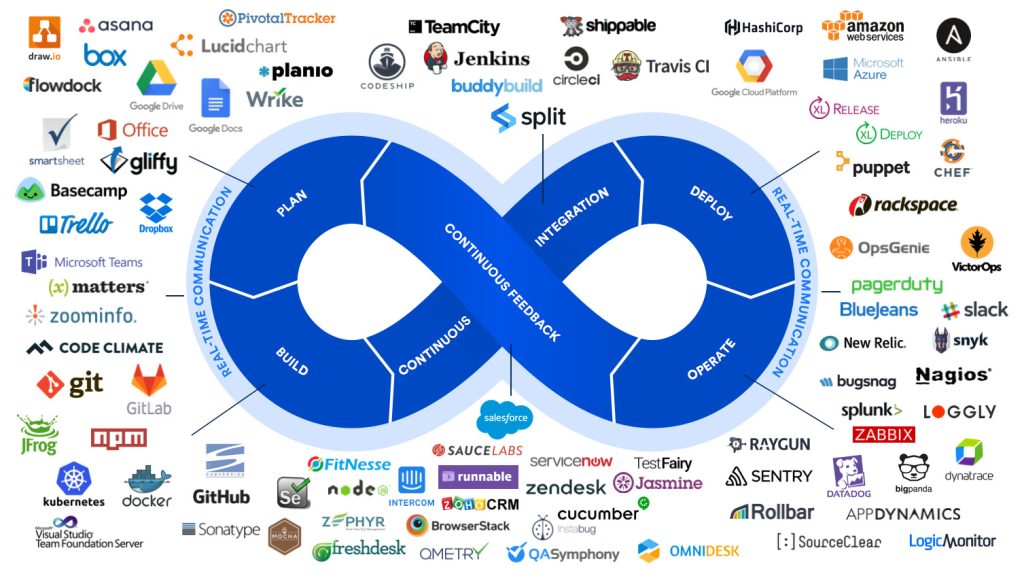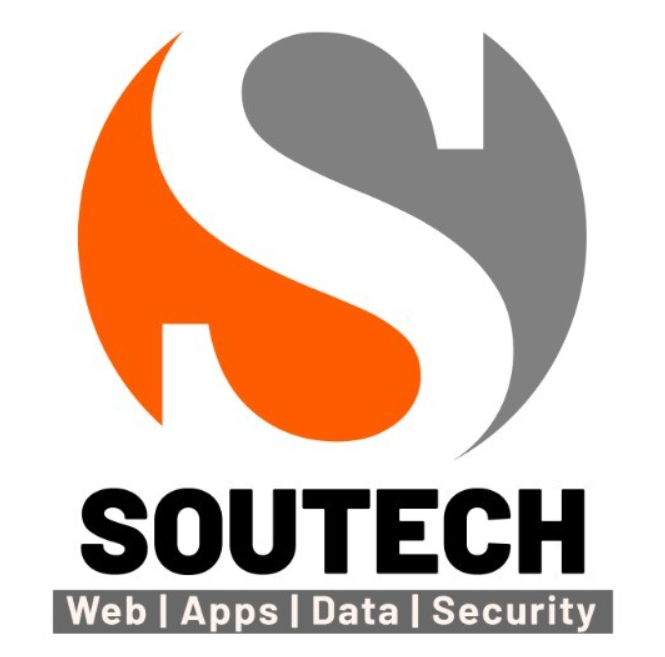- September 8, 2023
- Posted by: SouTech Team
- Category: Blog

How to Become a Professional DevOps Engineer: A Comprehensive Guide
DevOps, a fusion of “Development” and “Operations,” is a cultural and technical movement aimed at unifying software development and IT operations. Embracing the DevOps philosophy requires more than just technical prowess; it demands a holistic understanding of the software development lifecycle and a passion for continuous improvement. Here’s a deep dive into the essential aspects aspiring DevOps professionals need to master:
- Version Control:
- Definition: At its core, version control is a system that records changes to files over time, allowing multiple people to collaborate and track changes.
- Key Tools: Git is the de facto standard, with platforms like GitHub and GitLab providing cloud-based repositories and collaboration features.
- Importance: In a world where continuous delivery is the norm, managing code changes efficiently and avoiding “integration hell” is crucial. DevOps professionals must not only know how to commit code but also understand advanced strategies, such as branching and merging, to maintain a seamless code flow.
- Infrastructure as Code (IaC):
- Definition: IaC is the principle of defining and managing IT infrastructure using descriptive code files, rather than manual processes.
- Key Tools: Terraform, Ansible, Chef, and Puppet are industry leaders in this space.
- Importance: IaC brings consistency and repeatability to infrastructure provisioning. By versioning infrastructure the same way as software, teams can replicate environments with ease, minimizing the “it works on my machine” syndrome.

- Continuous Integration/Continuous Deployment (CI/CD):
- Definition: This refers to the automation of building, testing, and deploying applications.
- Key Tools: Jenkins is a stalwart in the CI/CD space, but newcomers like CircleCI and GitLab CI have gained traction due to their cloud-native capabilities.
- Importance: Automated pipelines reduce manual intervention, ensuring that code changes are continuously integrated, tested, and delivered to production, resulting in faster feedback loops and quicker release cycles.
- Containerization & Orchestration:
- Definition: Containerization encapsulates applications in ‘containers’ with all their dependencies, ensuring they run uniformly across environments. Orchestration manages these containers’ lifecycle.
- Key Tools: Docker revolutionized containerization. For orchestration, Kubernetes is an undisputed leader, though Docker Swarm provides an alternative.
- Importance: As microservices architectures become more prevalent, managing individual components efficiently and consistently is crucial. Containers reduce environmental discrepancies, while orchestration tools handle scaling, failover, and deployment strategies.
- Monitoring, Logging & Alerting:
- Definition: This encompasses tools and practices that keep a close watch on applications, gather logs for analysis, and notify teams about potential issues.
- Key Tools: Prometheus and Grafana offer robust monitoring solutions. The ELK Stack (Elasticsearch, Logstash, Kibana) dominates the logging space, and tools like PagerDuty handle alerting.
- Importance: With applications becoming more distributed, understanding system health, performance bottlenecks, and unexpected errors is paramount. Anomalies need to be detected and addressed swiftly to ensure optimal user experience.
- Cloud Platforms:
- Definition: Cloud platforms provide a range of services from computing power and storage to advanced machine learning and IoT capabilities.
- Key Tools: AWS, Azure, and Google Cloud Platform are the big players, with each offering a vast ecosystem of services.
- Importance: The flexibility, scalability, and plethora of services offered by cloud providers make them a primary choice for modern application deployment. DevOps professionals should understand cloud services, cost structures, and best practices to fully harness their potential.
- Soft Skills & Collaboration:
- Definition: Beyond technical know-how, interpersonal skills play a pivotal role in the DevOps arena.
- Skills Needed: Effective communication, empathy, teamwork, and problem-solving are at the core.
- Importance: DevOps is a culture of collaboration. Bridging the historical gaps between developers, operations, QA, and other departments requires trust and open communication. DevOps professionals often find themselves as mediators, ensuring smooth workflow and fostering a positive working environment.
In wrapping up, while the above tenets form the foundation, a DevOps engineer should also possess a robust knowledge of systems administration, be it Linux or Windows, grasp fundamental networking concepts, and always prioritize security best practices. The world of DevOps is dynamic, with tools and practices evolving continually. Aspiring DevOps professionals must embrace a mindset of lifelong learning and adaptation, always staying curious and connected to industry trends.
Speak to us for training, certifications, mentorship, internship and consulting…
DevOps training courses, Professional DevOps certification in abuja lagos owerri, Version control training, IaC training programs, CI/CD training workshops, Continuous Integration course, Hands-on Continuous Deployment training, Containerization training sessions, Kubernetes orchestration classes, Docker training for beginners in abuja lagos owerri, Monitoring tools training in abuja lagos owerri, ELK Stack logging tutorial, Cloud platforms training service, AWS DevOps training, DevOps soft skills workshop, Collaboration techniques in DevOps course, System administration DevOps training, Networking for DevOps workshop in abuja lagos owerri, DevOps security best practices seminar, Advanced DevOps training programs in abuja lagos owerri


